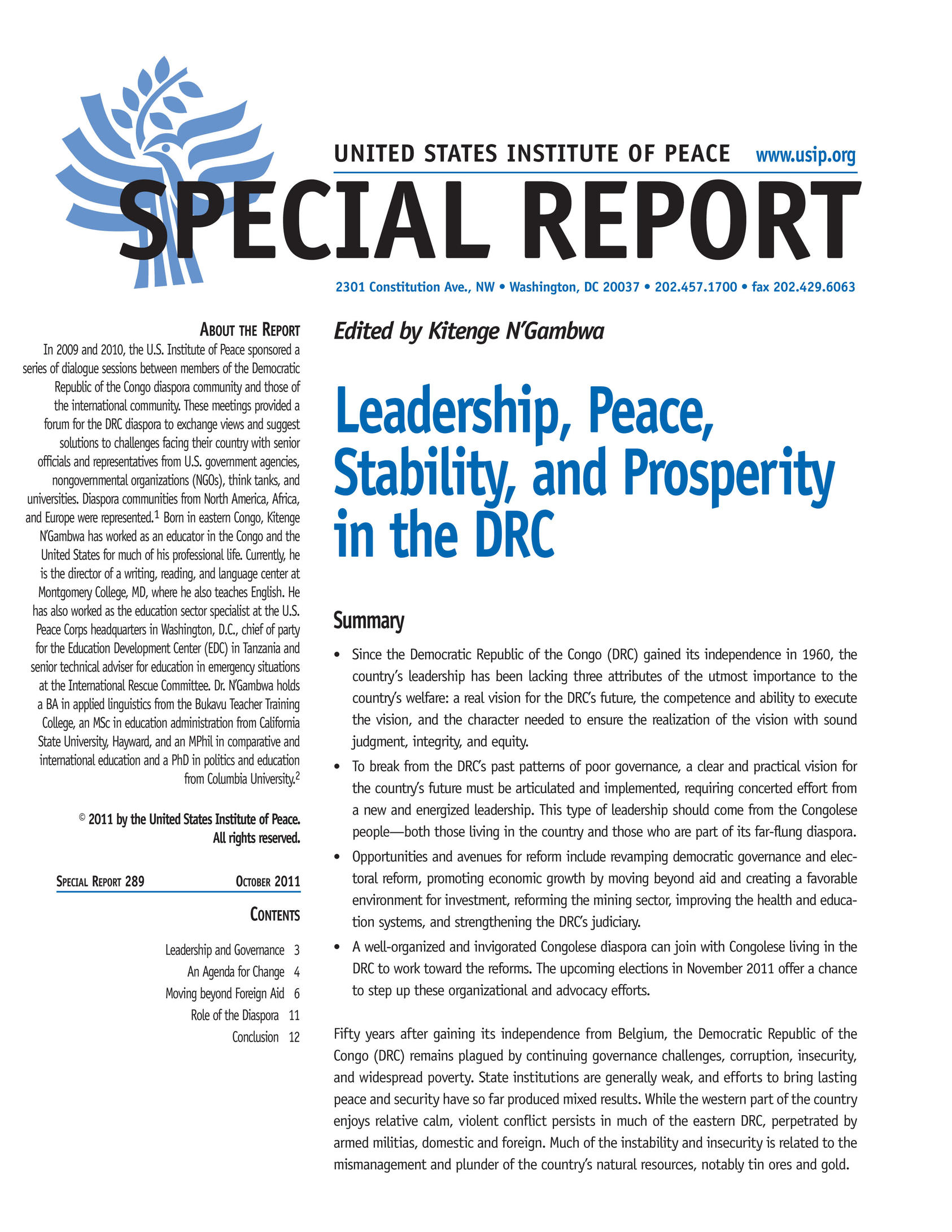People living in the DRC should band together with Congolese diaspora to develop a vision for DRC’s future that can drive governance reform. In this Special Report, diaspora leaders share ideas for invigorating the economy, judiciary, health, education, and democracy.

Summary
- Since the Democratic Republic of the Congo (DRC) gained its independence in 1960, the country ’s leadership has been lacking three attributes of the utmost importance to the country’s welfare: a real vision for the DRC’s future, the competence and ability to execute the vision, and the character needed to ensure the realization of the vision with sound judgment, integrity, and equity.
- To break from the DRC’s past patterns of poor governance, a clear and practical vision for the country’s future must be articulated and implemented, requiring concerted effort from a new and energized leadership. This type of leadership should come from the Congolese people—both those living in the country and those who are part of its far-flung diaspora.
- Opportunities and avenues for reform include revamping democratic governance and electoral reform, promoting economic growth by moving beyond aid and creating a favorable environment for investment, reforming the mining sector, improving the health and education systems, and strengthening the DRC’s judiciary.
- A well-organized and invigorated Congolese diaspora can join with Congolese living in the DRC to work toward the reforms. The upcoming elections in November 2011 offer a chance to step up these organizational and advocacy efforts.
About the Report
In 2009 and 2010, the U.S. Institute of Peace sponsored a series of dialogue sessions between members of the Democratic Republic of the Congo diaspora community and those of the international community. These meetings provided a forum for the DRC diaspora to exchange views and suggest solutions to challenges facing their country with senior officials and representatives from U.S. government agencies, nongovernmental organizations (NGOs), think tanks, and universities. Diaspora communities from North America, Africa, and Europe were represented.
Born in eastern Congo, Kitenge N’Gambwa has worked as an educator in the Congo and the United States for much of his professional life. Currently, he is the director of a writing, reading, and language center at Montgomery College, MD, where he also teaches English. He has also worked as the education sector specialist at the U.S. Peace Corps headquarters in Washington, D.C., chief of party for the Education Development Center (EDC) in Tanzania and senior technical adviser for education in emergency situations at the International Rescue Committee. Dr. N’Gambwa holds a BA in applied linguistics from the Bukavu Teacher Training College, an MSc in education administration from California State University, Hayward, and an MPhil in comparative and international education and a PhD in politics and education from Columbia University.